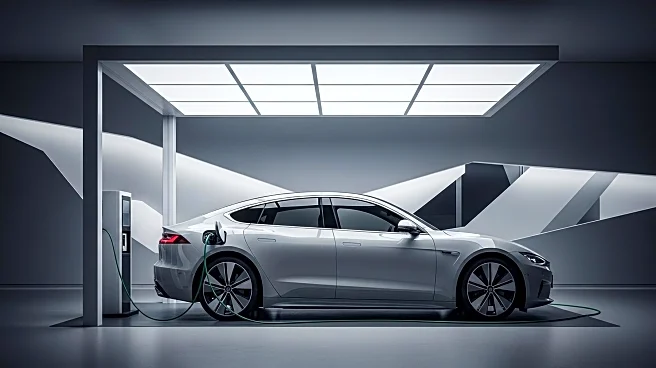What's Happening?
Tesla reported a significant increase in vehicle deliveries for the third quarter, surpassing Wall Street expectations. The company delivered 497,099 vehicles, marking a 7.4% increase from the previous year. This surge was largely driven by U.S. buyers rushing to take advantage of federal tax credits before their expiration at the end of September. Despite the strong quarter, concerns loom over potential declines in future sales due to the expiration of these credits. Tesla's European sales saw a decline, with market share dropping to 1.5% as competitors promoted plug-in hybrids and Chinese EV brands gained traction.
Why It's Important?
The expiration of the $7,500 federal tax credit is expected to impact Tesla's sales in the upcoming quarters, potentially leading to a slowdown. This development highlights the significant role of government incentives in driving electric vehicle sales. Tesla's ability to maintain momentum may depend on its strategy to introduce lower-cost models, which could help cushion the impact of reduced incentives. The company's performance is crucial for the broader EV market, influencing investor sentiment and competitive dynamics.
What's Next?
Tesla is set to report its quarterly results on October 22, which will provide further insights into its financial health and strategic direction. Analysts suggest that Tesla's focus on affordable models will be key to sustaining sales momentum. The company plans to roll out a lower-cost Model Y variant, which could be pivotal in maintaining its market position amidst changing incentive structures.
Beyond the Headlines
Tesla's strategy to position itself as a technology company, focusing on AI-based self-driving systems and robotaxis, could redefine its market identity. This shift may influence consumer perceptions and drive innovation in the automotive industry, potentially setting new standards for technological integration in vehicles.











